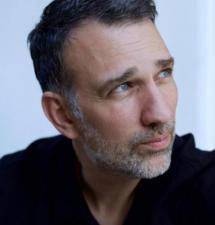
If you’re looking for a traditional master’s degree in dance that will send you on a well-trod career as a performing dancer, the new MFA at Duke is probably not for you.
If, on the other hand, you’re curious about the role dance and body movement play in the larger world, you very well may be a match.
 Duke’s newest MFA program enrolls its first class in fall 2019. It will be a two-year program for approximately seven students each year, about half of whom will come with traditional dance or choreography backgrounds. The rest will come from other walks of life, ideally with honed ideas about how dance can mix with their other life and work experiences. (The application deadline is Feb. 15 and details are available here)
Duke’s newest MFA program enrolls its first class in fall 2019. It will be a two-year program for approximately seven students each year, about half of whom will come with traditional dance or choreography backgrounds. The rest will come from other walks of life, ideally with honed ideas about how dance can mix with their other life and work experiences. (The application deadline is Feb. 15 and details are available here)
Michael Klien, the program’s director, recently discussed the new initiative with Duke Today.
How is this an unusual dance master’s program?
We made the very conscious decision that Duke wouldn’t be the best place for a traditional dance training. There should be a dance MFA degree for anybody – no matter what your age, shape or cultural background. It’s for anybody who has the will and the passion and a deep engagement with embodiment at large.
But we also think our method of interdisciplinarity will expand the horizon and the kind of innovation level for professional choreographers and dancers. So we think this would be a good choice for dancers and choreographers who already have an established artistic practice.
So you’re looking for students who won’t all be alike.
We want a really diverse group of students. Every single member will fuse dance with a different field of knowledge. There will be an enormous opportunity for peer-to-peer learning. And for the faculty, this is interesting. We obviously want to learn too, and collectively develop the field.
An accountant could come to this program? A doctor?
So far we have prospective applicants from PhDs, from lawyers, from dancers obviously. We have people who are social activists who want to work with people with special needs, engage politically or in health care. These are people who think that body movement can bring changes to practices in their established fields and create new ideas.
Can you give us an example?
Someone might develop ways Parkinson’s patients can be helped by dance movements. Or if someone’s interested in dance and human rights, we’ll pair them with experts in human rights studies here at Duke. This MFA doesn’t think of dance narrowly.
What does Duke offer a student in the dance MFA program that he or she wouldn’t get in another program?
It’s radically different. You’re very autonomous in your curriculum design. Duke will be your studio, your playground for your ideas. You can take classes in any department, any school. All of Duke is available to you --- that’s the candy shop. You have this top research university at the tip of your fingers. That doesn’t happen a lot to artists. Usually, you go to art school, you’re surrounded by artists. That can be highly limiting.
Our tag line is ‘equipping the imagination for social transformation.’ Because very often, what stands in the way of change is the inability to imagine what else can be. We want to give space to imagine and try out and see what else can be – whether it’s on a stage or in a hospital or in a law office or in the Senate.
Where do you envision your MFA graduates going when they complete this program?
There are a number of pathways. One is to actually be entrepreneurial and set up your own business. Part of the MFA is a certificate in social innovation; it’s a course that allows you to identify and form a business plan around an idea that you could potentially monetize. It’s important because many artists don’t even realize they have ideas they could make a living with.
The other pathway is obviously continuing work as an artist – running organizations in the arts, whether it’s dance companies or festivals. Academia is always an option as well. We do have an emphasis on writing skills and the ability to communicate your work.
What I realize from the applications coming in is that there is no one way. There is no one answer to what people will do with this degree. It’s varied and it will be individualized. Everyone will have a different trajectory.